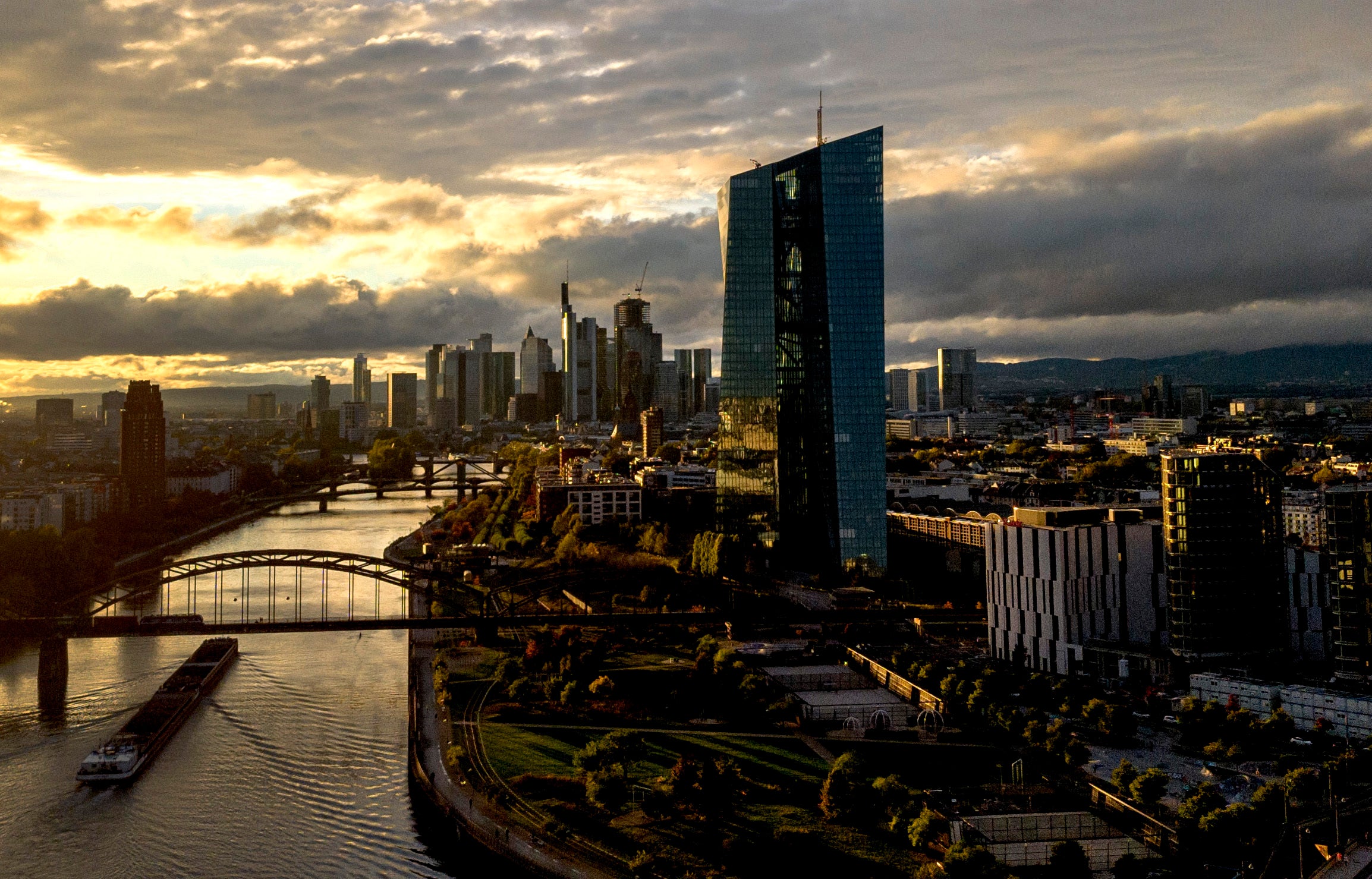Inflation in Europe falls to 2.4%. It shows interest rates are packing a punch
Europeans are again seeing some relief as inflation dropped to 2.4% in November, the lowest in more than two years

Your support helps us to tell the story
From reproductive rights to climate change to Big Tech, The Independent is on the ground when the story is developing. Whether it's investigating the financials of Elon Musk's pro-Trump PAC or producing our latest documentary, 'The A Word', which shines a light on the American women fighting for reproductive rights, we know how important it is to parse out the facts from the messaging.
At such a critical moment in US history, we need reporters on the ground. Your donation allows us to keep sending journalists to speak to both sides of the story.
The Independent is trusted by Americans across the entire political spectrum. And unlike many other quality news outlets, we choose not to lock Americans out of our reporting and analysis with paywalls. We believe quality journalism should be available to everyone, paid for by those who can afford it.
Your support makes all the difference.Europeans again saw some relief as inflation dropped to 2.4% in November, the lowest in more than two years, as plummeting energy costs have eased a cost-of-living crisis but higher interest rates squeeze the economy's ability to grow.
Inflation for the 20 countries using the euro currency fell from an annual 2.9% in October, according to numbers released Thursday by Eurostat, the European Union's statistics agency. It's a far cry from the peak of 10.6% in October 2022 as an energy crisis left Europe's households and businesses struggling to make ends meet.
The new figure is close to the European Central Bank's inflation target of 2% following a rapid series of interest rate hikes dating to summer 2022. But the tradeoff is stalled economic growth.
It raises the expectations that the ECB will hold rates steady for the second time in a row at its next meeting Dec. 14.
ECB President Christine Lagarde reiterated this week that the bank would make decisions based on the latest data and keep rates high as long as needed to reach its inflation goal. The ECB's key rate has hit a record-high 4%.
“This is not the time to start declaring victory,” she said at a hearing in the European Parliament.
That's on stark display in Germany, Europe's largest economy, which saw annual inflation fall to 2.3% this month from 3% in October. But it is now dealing with a budget crisis — on top of being the world's worst-performing major economy.
The energy crunch was especially hard on Germany, which relied on cheap natural gas from Russia to power its factories. Moscow largely cut off supplies to Europe after Western sanctions over the invasion of Ukraine, and companies are still facing the fallout. Relief on their bills is at risk after a court ruling upended Germany's spending plan and left the government scrambling to fill a 60 billion-euro (more than $65 billion) hole.
The larger eurozone has barely expanded this year, eking out 0.1% growth in the July-to-September quarter. On Wednesday, the OECD projected that this year's muted growth of 0.6% would rise only to 0.9% next year.
“With a weakening economic outlook and disinflation, rate hikes should be off the table at the December meeting,” Carsten Brzeski, global head of macro at ING bank, said about the ECB.
“Given that the full impact of the tightening so far will still unfold in the coming months, the risk is even high that the ECB has already tightened too much,” he said in a research note.